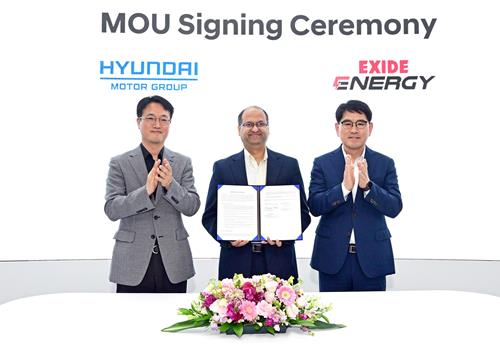Nissan plans entry-level EV for Bhutan, India next in line
Nissan’s entry into Bhutan may help the Japanese OEM more than just sell EVs in the Himalayan kingdom.
Nissan’s entry into Bhutan may help the Japanese OEM more than just sell EVs in the Himalayan kingdom. While its first EV there will be the Leaf – the world’s first mass-produced zero emissions vehicle and the best-selling EV – in a year or two, the Leaf may get company in a new entry-level EV in Nissan’s portfolio co-developed with Thunder Motors, its local business partner in Bhutan.
Autocar Professional has learnt that Thunder Motors is already testing prototypes of a new EV. The company, which has been appointed as a national sales company by Nissan for Bhutan, is a local R&D firm focused on designing electric vehicles for Bhutan and has experience with the conversion of EVs to suit Bhutan’s driving conditions.
Nissan could bring its advanced technology know-how on EV powertrain and sourcing to develop the new EV. The entry-level EV could cost ‘very roughly half’ of what the Leaf costs. The Leaf is priced at $30,000 (Rs 18.6 lakh), without any subsidy. It is also likely that the new EV could also be badged as Datsun, as it potentially will attract first-time EV buyers into Nissan’s fold.
According to Andy Palmer, chief planning officer and executive vice-president responsible for zero emission vehicle planning & strategy, Nissan will decide on the badging of a locally-made car in Bhutan, after confirming the project is feasible with its partner.
ENTRY-LEVEL EV FOR INDIA TOO
It will help Nissan if the project with its local partner results in the addition of a new, small EV to its portfolio. This will attract a new customer base, not only in Bhutan but also in India and other similar markets. In India, the small EV will help Nissan compete against Mahindra Reva, which recently lowered the entry-level price of its sole model, the e2o, by Rs 170,000 (the e2o will cost Rs 500,000, ex-showroom, Mumbai, exclusive of battery cost).
If the viability study is positive, the car may well be launched in India too. Palmer is bullish about Nissan’s prospects in India. “We see a huge opportunity in India,” he says. Action on the government policy for electric/hybrid vehicles is perhaps what is keeping OEMs like Nissan, home-grown company Mahindra Reva and others from tapping the opportunity. Nissan is “awaiting an aggressive move by India”. A conducive regulation could see Nissan “among the first, if not the first” global OEM to launch full-fledged EVs in India.
Nissan had conducted feasibility studies for the Leaf in India. According to Palmer, the response was positive for the model which enjoys a 95 percent satisfaction level among users in markets where it is sold, putting it on the top of Nissan’s entire EV model range.
A successful viability study for the small EV is what the Japanese major would need to woo more buyers when it enters the Indian EV market.
For now, Nissan Motor Co is focusing on translating its strategy for Bhutan and realise the goal it shares with the Royal Government of Bhutan to achieve the nation’s eco-friendly vision for the future. “Bhutan is pleased to launch this partnership with Nissan as we work to achieve our vision of a leading global EV nation,” said prime minister Tshering Tobgay.
“We will also use the opportunity of supplying the Nissan Leaf and our quick chargers to Bhutan to demonstrate how our electric vehicle business can be scaled in emerging markets that are rich in clean-energy,” said Nissan CEO Carlos Ghosn.
Bhutan’s government is targeting EVs as a key strategy to achieve its goal of becoming a zero emissions nation. It envisages Thimphu as a ‘clean-electric’ city in which transportation for its more than 100,000 citizens is powered by clean energy. Bhutan generates sufficient hydro-electricity — clean energy is the country’s major export but it has to import fossil fuels to run its current vehicle fleet. It now aims to reduce its oil imports significantly.
As a first step, Nissan will deliver its Leafs for use in the government fleet, and as taxis, as well as demonstration units for the national rollout of EVs.
Bhutan says it will study implementation of an exemption from the green tax, sales tax and custom duty for EVs as well as a carbon credit scheme where the sale of EVs will earn credits that can be traded for tax exemptions for imported internal combustion engine-powered (ICE) vehicles.
Photograph: Tshering Tobgay, Bhutan’s prime minister, and Carlos Ghosn, CEO, Nissan Motor Co, announced the partnership agreement in Thimpu between the government of Bhutan and Nissan Motor Co on February 21. The Nissan Leaf seen in the photo is the world's best-selling electric vehicle.
RELATED ARTICLES
IIT Bombay inaugurates Arun Firodia Research Floor
IIT Bombay, one of India’s top technical and research institutions, honours Kinetic Group chairman Dr Arun Firodia, one ...
Maruti Suzuki expands capacity at Manesar plant by additional 100,000 units
New assembly line at Plant A expands total manufacturing capacity at the Manesar plants to 900,000 units per annum. Alon...
Hyundai and Kia partner Exide Energy to produce LFP batteries in India
Partnership with Exide Energy enables Hyundai Motor and Kia to equip future EVs in the Indian market with locally produc...





 03 Mar 2014
03 Mar 2014
 3454 Views
3454 Views





 Autocar Pro News Desk
Autocar Pro News Desk




